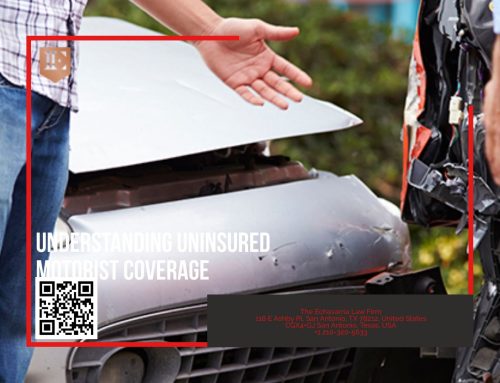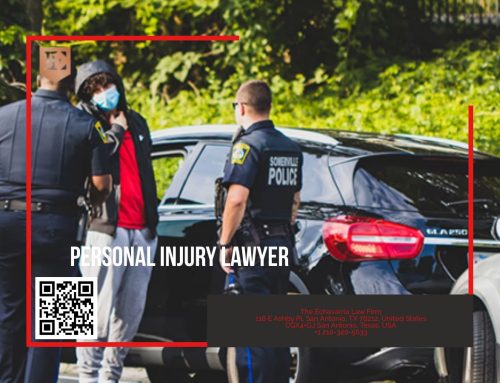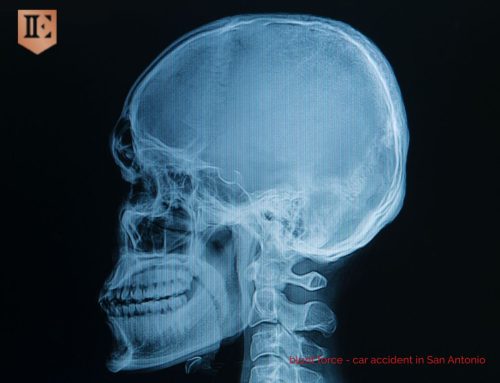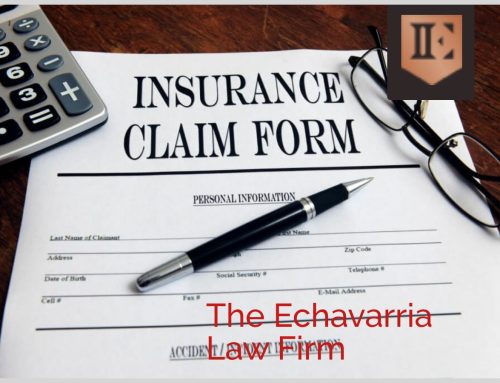 Texas Car Accident Passenger Rights: Know Your Entitlements and Protections
Texas Car Accident Passenger Rights: Know Your Entitlements and Protections
When involved in a car accident as a passenger in Texas, it’s crucial to understand your rights and the legal protections available to you. As a passenger, you have certain entitlements that can help you seek compensation and navigate the aftermath of the accident. By knowing your rights and taking appropriate action, you can ensure your well-being and protect your interests in the legal process.
In such situations, it is important to first seek medical attention for any injuries sustained during the accident. Additionally, make sure to gather evidence such as photographs, witness statements, and any other relevant information that can support your case. This evidence will be essential for pursuing a claim against the responsible party, whether it be the driver of the vehicle you were in or another involved party.
Once you have received necessary medical care and collected evidence, it is advisable to consult with a personal injury attorney. An experienced attorney can guide you through the legal process, help you understand your rights, and assist in building a strong case. They can negotiate with insurance companies on your behalf and, if needed, represent you in court to ensure you receive fair compensation for your injuries, medical expenses, lost wages, and other damages.
Remember to keep all documents and records related to the accident, including medical bills, repair estimates, and correspondence with insurance companies. These records will help support your claim and strengthen your position when seeking compensation.
By being proactive and knowing your rights as a passenger in a car accident in Texas, you can protect your interests and maximize your chances of obtaining a favorable outcome. Don’t hesitate to seek legal advice and take action as soon as possible to ensure you are properly compensated for any injuries or damages you have suffered.
The Importance of Determining Fault in a Car Accident
Determining fault in a car accident is crucial in understanding the legal implications and assigning liability for the incident. It helps establish who is responsible for the damages and injuries caused, enabling the affected parties to pursue legal action and seek appropriate compensation. The importance lies in accurately identifying the party at fault, as it can significantly impact the outcome of any insurance claims or legal proceedings that may follow. By determining fault, victims can navigate the legal process effectively and enhance their chances of receiving fair compensation.
In analyzing the aftermath of a car accident, establishing fault is an essential aspect. It allows the responsible party to be held accountable for their actions, ensuring justice for the victims. Moreover, the determination of fault provides a basis for insurance companies to assess liability and negotiate settlements in a fair and equitable manner. Understanding the importance of ascertaining fault helps streamline the claims process, preventing delays and minimizing potential disputes.
It is important to note that determining fault in a car accident involves a comprehensive investigation that considers various factors such as eyewitness testimonies, police reports, accident reconstruction, and any applicable traffic laws. These details help build a strong case while also ensuring that the responsible party is held to account. By analyzing these elements, the true cause of the accident can be established, ensuring a fair resolution for all parties involved.
Pro Tip: If you are involved in a car accident, gather as much evidence as possible, including witness statements, photographs, and any available video footage. This documentation will strengthen your case when determining fault and seeking compensation.
Elements of Liability in Car Accidents in Texas
Liability in Car Accidents in Texas: Key Points and Details
Liability in car accidents in Texas refers to the legal responsibility one party holds for causing the accident and any resulting damages. Understanding the elements of liability is crucial to navigating the legal aftermath of a car accident in Texas.
- Fault: Determining fault is essential in car accident liability. Texas follows a modified comparative fault rule, meaning that a party can still recover damages as long as their percentage of fault is 50% or less.
- Negligence: Proving negligence involves demonstrating that the at-fault party breached their duty of care, causing harm. Negligence can arise from various actions, such as speeding, distracted driving, or running a red light.
- Causation: Besides demonstrating negligence, the injured party must also prove that the negligent actions directly caused the accident and resulting injuries. Establishing a clear causal link is crucial for successful liability claims.
- Damages: To hold the at-fault party liable, the injured party must show that they suffered actual damages. These damages can include medical expenses, lost wages, property damage, and pain and suffering.
- Evidence: Building a strong case requires gathering and presenting relevant evidence. This can include accident reports, witness statements, photographs, medical records, and expert testimony.
Texas law regarding liability in car accidents is complex, and seeking legal guidance is often crucial to ensure your rights are protected. It is important to remember that every case is unique, and the specific details surrounding liability may vary.
In Texas, the modified comparative fault rule allows accident victims to seek compensation even if they were partially at fault. (Source: Texas Department of Insurance)
What Damages Can You Recover as a Passenger in a Texas Car Accident?
As a passenger in a car accident in Texas, you have the right to recover damages for any injuries or losses you suffer. This includes compensation for medical expenses, property damage, and pain and suffering. Additionally, you may be able to recover lost wages if your injuries prevent you from working. It is important to consult with a qualified attorney who can help you navigate the legal process and ensure you receive the compensation you deserve as a passenger in a Texas car accident.
- Medical Expenses: If you sustain injuries as a passenger in a car accident, you can seek compensation for medical treatment, including hospital bills, surgeries, medications, and rehabilitation.
- Property Damage: If your personal belongings are damaged in the accident, such as electronics or clothing, you can seek reimbursement for the cost of repairing or replacing them.
- Pain and Suffering: As a passenger, you may be entitled to compensation for physical pain, emotional distress, and psychological trauma resulting from the accident.
In addition to these damages, it is important to note that Texas follows a modified comparative fault rule. This means that if you are found partially at fault for the accident, your compensation may be reduced. However, as long as you are less than 51% at fault, you can still recover damages. A true fact is that according to an article on the Texas-based website, there are specific laws and regulations in place to protect the rights of passengers involved in car accidents.
Conclusion
As a passenger in a car accident in Texas, it is important to be aware of your rights and the steps you can take to protect yourself. Understanding the legal framework surrounding car accidents can help you navigate the situation more effectively. It is crucial to consult with a legal professional who specializes in personal injury cases to ensure that your rights are properly represented. Taking prompt action and gathering relevant information about the accident can also be beneficial in building a strong case. Remember, your rights as a passenger are important and it is crucial to assert them to seek the compensation you deserve. Act now to safeguard your interests and protect your rights as a passenger in a car accident in Texas.
Some Facts About Your Rights As A Passenger In A Car Accident In Texas:
- Texas is an at-fault state for car accident insurance.
- As a passenger in a vehicle involved in an accident, you are not at fault.
- To determine fault in a car accident, evidence such as police reports, traffic camera footage, and eyewitness testimony can be used.
- Proving liability in a car accident requires showing that the at-fault party owed a duty of care, breached that duty, and directly caused the accident resulting in damages.
- As a passenger in a car accident in Texas, you have the right to recover damages, including medical expenses, lost wages, pain and suffering, and other potential damages.
FAQs about What Are Your Rights As A Passenger In A Car Accident In Texas?
What are your rights as a passenger in a car accident in Texas?
As a passenger in a car accident in Texas, you have rights, including the right to compensation for the damages you’ve suffered. Texas is an at-fault state for car accident insurance, meaning you are not at fault as a passenger. It’s important to understand your rights and take the necessary steps towards physical and financial recovery.
How is fault determined in a car accident where the passenger is injured?
While a passenger is never at fault in a car accident, determining fault is still crucial for seeking compensation. An attorney can investigate the accident by examining various evidence such as the police report, traffic camera footage, dash camera footage, eyewitness testimony, and accident scene photos. Expert witnesses may also be involved to reconstruct the accident scene. Once fault is established, the responsible party’s insurance should cover the passenger’s damages.
What elements need to be proven to establish liability in a car accident in Texas?
Proving liability in a car accident involves demonstrating specific elements beyond simply causing the accident. These elements include showing that the at-fault party owed a duty of care to others on the road, breached that duty through negligence or recklessness, directly caused the accident, and resulted in real damages to the victim. Meeting these criteria allows the passenger to exercise their right to compensation for their damages.
What types of damages can a passenger in a Texas car accident recover?
As a passenger in a car accident in Texas, you may be eligible to recover various damages. This includes medical expenses, future medical expenses, lost wages, future lost wages, diminished capacity for earning if there is a resulting disability, pain and suffering, and other potential damages such as scarring, disfigurement, loss of consortium, and emotional trauma. These damages can help you recover from the financial concerns and detrimental changes in your life caused by the accident.
How can an attorney help maximize the recovery of damages for a passenger in a Texas car accident?
An experienced car accident attorney can assist you in maximizing your recovery of damages. They can navigate the common tactics used by insurance companies to deny or minimize claims. With their expertise, they can help you gather evidence, negotiate with the at-fault party’s insurance company, and ensure you receive the compensation you deserve for your injuries and losses.
What are future expenses that a passenger in a Texas car accident may be entitled to?
If a passenger requires further medical treatment or experiences future lost wages due to their car accident injury, they may be entitled to compensation for these future expenses. It’s important to account for any long-term effects and potential financial hardships caused by the accident when seeking appropriate compensation.







